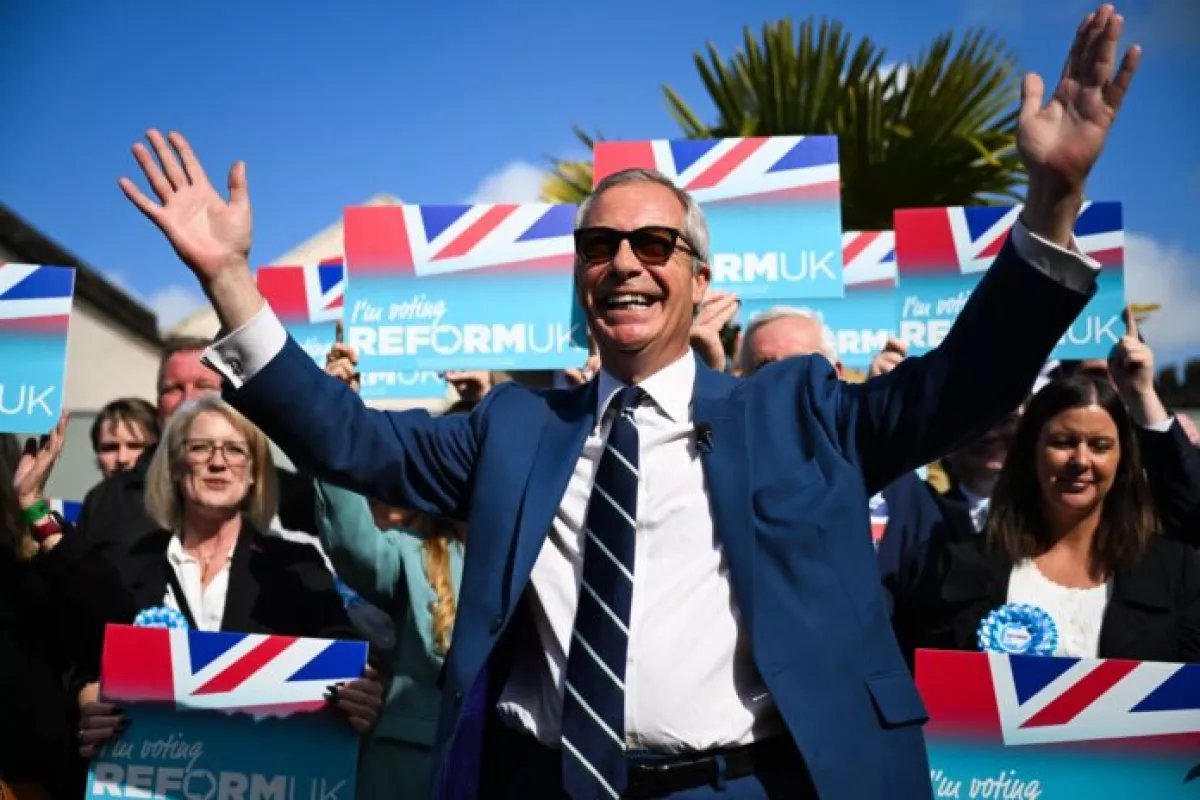The King’s subjects want reform Populists gain ground in the UK
On May 1, the Reform UK party achieved a significant victory in the United Kingdom’s local elections.
Reform UK, widely considered a right-wing populist party, capitalised on public disillusionment with the country’s two traditional parties—the Labour Party, which won last year’s general election, and the Conservatives, who had governed for the previous 14 years.

The elections in question involved a contest for 1,641 council seats in North West England, as well as six mayoral posts. Reform UK secured 677 seats across several councils that had previously been largely under Conservative control.
The losses suffered by their rivals were striking: the Conservatives lost 676 seats, while Labour lost 186.
The Reform UK party’s platform features a classic “gentleman’s populist” package—cutting public spending, lowering taxes, cracking down on illegal immigration, boosting police and defence funding, and further developing the ideas of the Brexit Party. This includes, notably, advocating for the UK’s withdrawal from the European Convention on Human Rights.
At the helm of the party is Nigel Farage, a figure well known to those who followed the UK’s departure from the EU. He was one of Brexit’s most fervent advocates and popularisers—so committed, in fact, that in 2019 his party chose not to field candidates in the general election to avoid inadvertently preventing the Conservatives from completing their long-sought break with the European Union.

Now that Brexit is a done deal, Farage is determined to achieve at home what he believes he rightfully deserves.
However, the first-past-the-post electoral system used in the United Kingdom prevents the vote share of smaller parties from being proportionally reflected in the makeup of Parliament.
For example, in the last general election, five million votes translated into just five seats in the House of Commons for the Reform Party.
To secure victory in the next election, they will need to gain overwhelming popularity—ideally not by merely inserting themselves into the political landscape, but by displacing one of the two traditional parties: the Conservatives or Labour.
Under these circumstances, the party most likely to be sidelined is the one that shares similar views but fails to effectively champion them. This is why the Reform UK party aims to replace the Conservatives, positioning itself as “His Majesty’s Loyal Opposition,” as it is known in Britain.
It’s no surprise that a number of experts have already referred to the results of the local elections as an “apocalypse for the Conservatives,” while Farage himself proclaimed on BBC: “I believe we are now the main opposition party instead of the Conservative Party.”
The populist victory in the UK marks another milestone in the rise of right-wing and populist parties across the Western world—a phenomenon that the media has casually dubbed the “rightward shift.”
However, this term doesn’t entirely capture the essence of the phenomenon, as it’s not always about strictly right-wing parties. What unites all the forces in this spectrum is their intolerance towards migrants.
From this perspective, the phenomenon could be more accurately described as a populist or Trumpist shift. Many of the leaders in this movement share a certain flamboyance in their behaviour akin to Trump. For instance, Nigel Farage enjoys making public appearances in pubs and openly smoking cigarettes.
In no country where populists have triumphed have they yet gained a "controlling stake" in politics. However, they are already breathing down the necks of liberals and centre-left politicians (consider the situations in Romania, France, and Germany, for instance).

The popularity of these forces is growing so rapidly that measures are already being taken against them. A notable example is the cancellation of nationalist Călin Georgescu's victory in the first round of Romania's presidential elections last December (in the recent re-run, Romanians again favoured the populist candidate in the first round).
In France, Marine Le Pen was handed a four-year suspended sentence and banned from participating in elections. In Germany, the Federal Office for the Protection of the Constitution labelled the Alternative for Germany (AfD) as an extremist organisation.
There are so many such occurrences that it’s hard to dismiss them as mere coincidence. The global liberal elite has shifted to open confrontation with right-wing populists. Now, the United Kingdom has joined the already numerous arenas of this struggle, making the fight even more dramatic.








